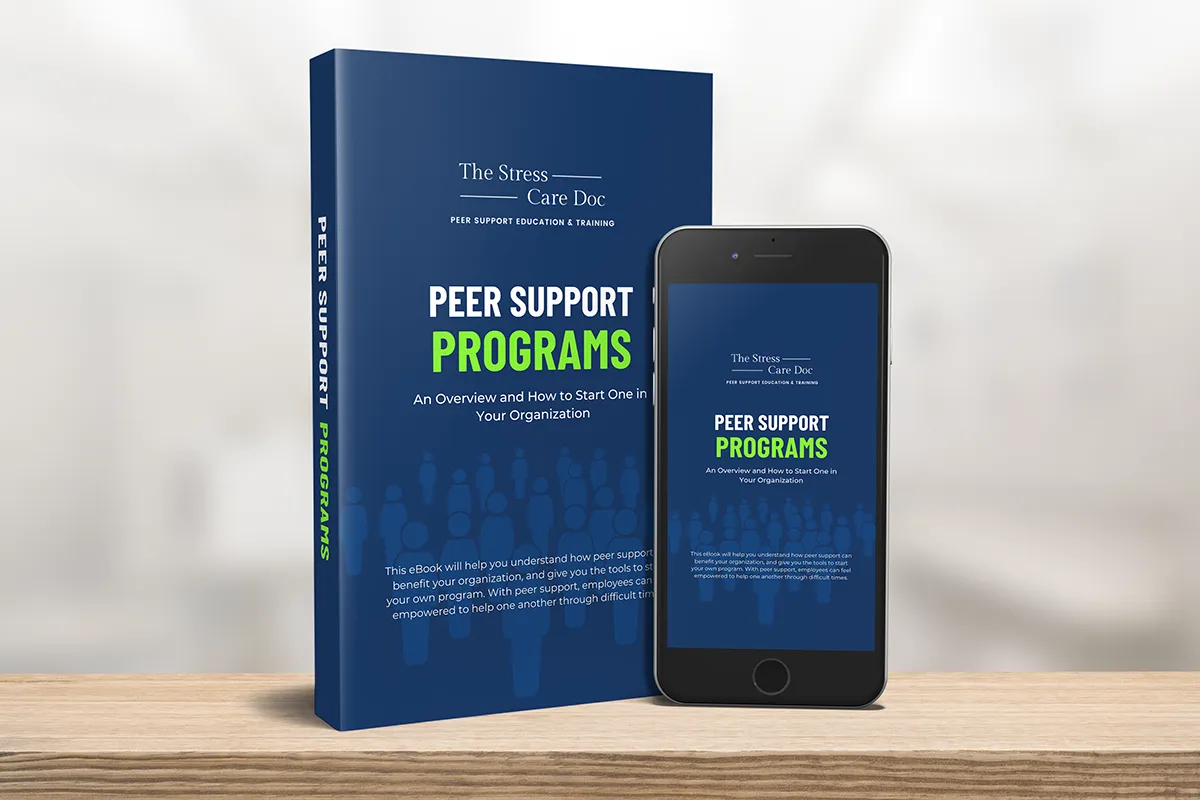Empowering Resilience: Uniting CISM and Peer Support for Mental Health
In high-stress professions, such as first responders and emergency medicine, the psychological toll of the work can be overwhelming. Daily exposure to traumatic situations, life-or-death decisions, and emotional burdens can gradually erode mental well-being. As a law enforcement veteran and an ICISF Approved Instructor and peer support team member, I have witnessed firsthand the critical importance of a proactive approach to mental health. By integrating Critical Incident Stress Management (CISM) and peer support into routine practice, organizations can help their members maintain mental well-being and bounce back from adversity.

CISM: A Holistic Approach to Crisis Intervention
Critical Incident Stress Management is a comprehensive, multi-component crisis intervention system designed to address the psychological needs of individuals and groups exposed to critical incidents. The primary goal of CISM is to mitigate the impact of traumatic events and facilitate recovery among those affected. As a CISM coordinator and instructor, I have participated in over 2,000 critical incident interventions throughout my career, supporting my fellow officers and other first responders during their most vulnerable moments.
One of the most powerful aspects of CISM is its emphasis on early intervention. By responding promptly to critical incidents and providing immediate support, the negative effects of trauma can be reduced, and the healing process can begin. My experiences attending officer-involved shootings exemplify this principle. Arriving on the scene within the first hour, I would support the affected officers until they were allowed to go home. It was always gratifying to witness their symptoms lessen as the principles of CISM were applied.
The Role of Peer Support in Mental Health Maintenance
In addition to CISM, peer support plays a crucial role in maintaining mental well-being in high-stress professions. Peer support refers to the assistance provided by individuals who share similar experiences and can empathize with the challenges faced by their colleagues. By offering understanding, emotional support, and practical guidance, peers can help one another navigate the emotional landscape of their profession.
A well-trained and responsive peer support team should be available not only for post-critical incident interventions but also for everyday stressors. In my career, I have seen how proactive support and training in resistance and resilience can equip individuals to bounce back more quickly after a critical incident and cope better with daily stressors. Social support provided by understanding, trained peers also provides hope for responders and others in high-stress occupations.
Pre-Incident Training: Psychological Body Armor™
To further enhance the resilience of first responders and high-stress professionals, organizations should invest in pre-incident training. One such program is Psychological Body Armor™, developed by Dr. George S. Everly. This training equips individuals with practical and evidence-based techniques to bounce back from adversity and enhance their overall immunity to career and life stressors.
By providing this type of training, organizations can help their members develop a proactive mindset towards mental health maintenance, build a solid foundation of coping skills, and foster a supportive culture that values psychological well-being.
Personal Impact of CISM Training
My training in CISM has not only allowed me to support others but has also helped me cope with my own personal traumas experienced during my first-responder career. By integrating the principles of CISM and peer support into my daily life, I have developed a greater understanding of the importance of mental health and the need for proactive approaches to maintain it.
Adopting a proactive approach to mental health through the integration of CISM and peer support into routine practice is, in my opinion, essential for first responders, mental health professionals, and high-stress professionals. By fostering a supportive environment, investing in pre-incident training, and maintaining a well-trained peer support team, organizations can significantly improve the mental well-being of their members and promote resilience in the face of adversity.
Best Practices for Implementing a Proactive Peer Support Team
To establish a proactive peer support team within an organization, it's important to follow best practices. This includes selecting team members who possess strong interpersonal skills, empathy, and a genuine desire to help others. Additionally, team members should receive specialized training in CISM, psychological first aid, active listening, and other relevant topics. This will ensure they are equipped with the necessary knowledge and skills to provide effective support.
Another best practice is to establish clear guidelines and protocols for the peer support team. This includes defining the team's role, the scope of practice, and referral procedures for professional mental health services when needed. By having a structured framework in place, the peer support team can operate efficiently and maintain a consistent approach to addressing emotional and mental health concerns.
Regular evaluation of the peer support team's effectiveness is also crucial. By collecting feedback from team members and those they support, organizations can identify areas for improvement and make adjustments as needed. This ongoing evaluation process helps to ensure that the peer support team continues to meet the evolving needs of the organization and its members.
Promoting Awareness and Reducing Stigma
To fully integrate CISM and peer support into routine practice, organizations must also address the issue of stigma surrounding mental health. This can be achieved by promoting awareness about the importance of mental health maintenance and encouraging open discussions about stress, trauma, and resilience. By fostering a culture of support and understanding, organizations can help to break down the barriers that often prevent individuals from seeking help when they need it most.
In summary, the importance of a proactive approach to mental health in high-stress professions cannot be overstated. Integrating CISM and peer support into routine practice helps to mitigate the impact of critical incidents, promote resilience, and maintain the mental well-being of those who dedicate their lives to serving others. By investing in proactive support, training, and a well-trained peer support team, organizations can create a more resilient and mentally healthy workforce, better equipped to navigate the challenges of their demanding professions.
Are You Interested in Starting a Successful Peer Support Program in Your Organization?
Get the tools you need to create an effective support system for your employees' emotional health.

Download your FREE resource
After you fill out the form you will be directed to your download page.
